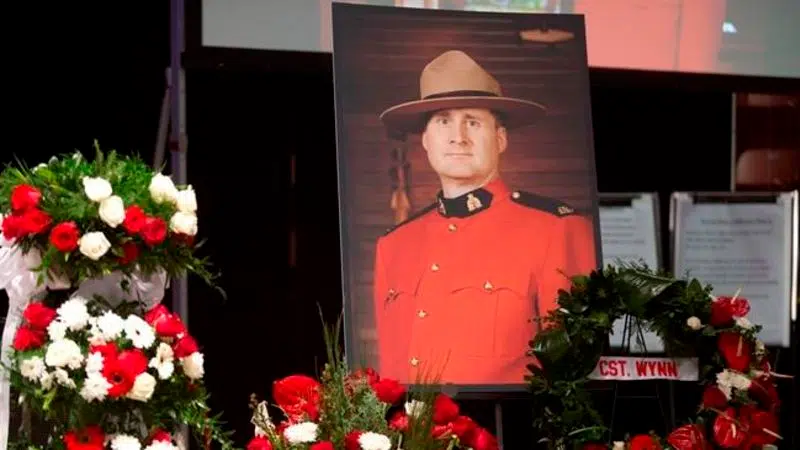
Inquiry to begin into shooting death of Edmonton-area RCMP officer
ST. ALBERT, Alta. — The widow of an Alberta RCMP officer shot and killed on duty hopes politicians take seriously any recommendations from a fatality inquiry into his death.
“My hopes are that anything that is recommended by the judge will be followed through with,” says Shelly Wynn.
Const. David Wynn, 42, was slain in a casino in St. Albert, north of Edmonton, while investigating a stolen truck in 2015.


